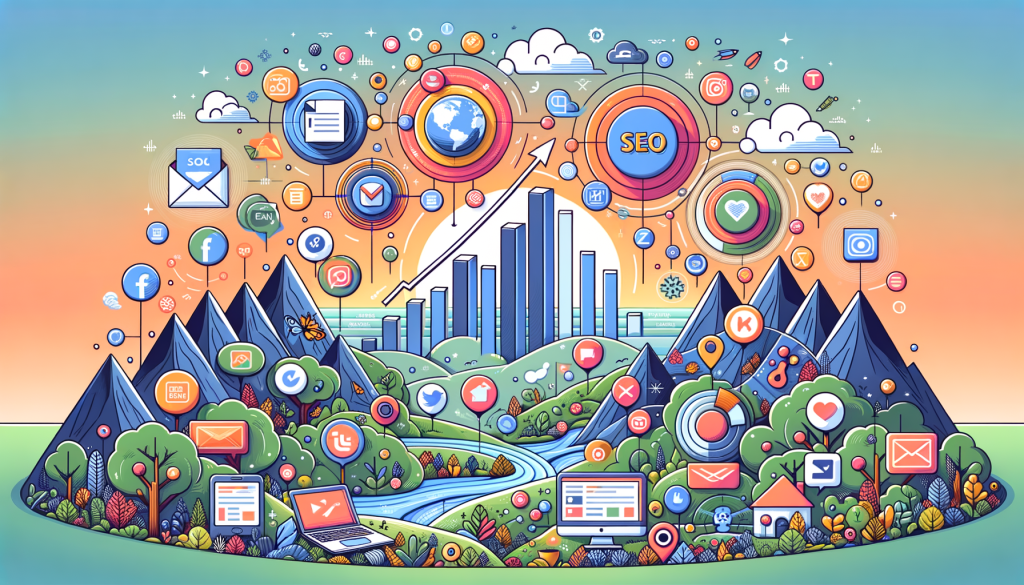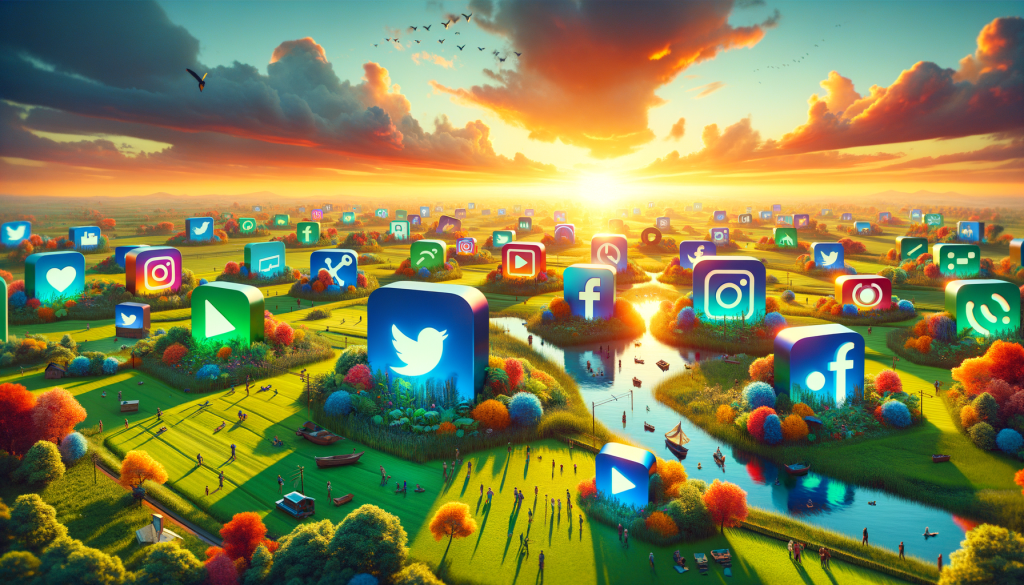Understanding Artificial Intelligence in Marketing
Artificial Intelligence (AI) is revolutionizing the field of marketing by providing businesses with powerful tools and insights to enhance their strategies and customer experiences. Through advanced algorithms and machine learning, AI can analyze vast amounts of data, identify patterns, and make predictions, enabling marketers to make data-driven decisions and optimize their campaigns.
AI has the ability to automate various marketing tasks, saving time and resources for businesses. With AI-powered chatbots, for example, companies can provide instant customer support and engage with their audience 24/7. AI can also personalize marketing messages and recommendations based on individual preferences and behaviors, increasing customer satisfaction and driving conversion rates.
Moreover, AI can improve the accuracy and efficiency of targeted advertising. By analyzing customer data and behavior, AI algorithms can identify the most relevant audience segments and deliver tailored ads to maximize their impact. This enables marketers to optimize their ad spend and achieve higher return on investment (ROI).
Another significant application of AI in marketing is predictive analytics. By analyzing historical data and patterns, AI can predict future trends and customer behavior, allowing marketers to anticipate market changes and adapt their strategies accordingly. This helps businesses stay ahead of the competition and make proactive decisions to drive growth.
Furthermore, AI can enhance the customer journey by providing personalized recommendations and suggestions. By analyzing data from various touchpoints, AI algorithms can understand customer preferences and interests, enabling marketers to deliver relevant content and offers at every stage of the buying process. This not only improves the customer experience but also increases the likelihood of conversion.
In conclusion, AI plays a crucial role in modern marketing by providing businesses with valuable insights, automation capabilities, and personalization opportunities. By harnessing the power of AI, marketers can optimize their campaigns, improve customer experiences, and drive business growth in a rapidly evolving digital landscape.
Transforming Customer Experience with AI
Artificial Intelligence (AI) has revolutionized the way businesses approach customer experience in the modern marketing era. By harnessing the power of AI, companies can now analyze vast amounts of customer data and gain valuable insights to personalize and enhance the customer journey.
One of the key benefits of AI in customer experience is its ability to provide real-time, personalized interactions with customers. AI-powered chatbots and virtual assistants can engage with customers, understand their needs, and provide relevant information or assistance instantly. This not only improves customer satisfaction but also allows businesses to handle a larger volume of customer inquiries efficiently.
AI also enables businesses to anticipate customer needs and proactively address them. By analyzing customer behavior and preferences, AI algorithms can predict what customers are likely to want or need, even before they express it. This allows companies to offer personalized recommendations, promotions, or product suggestions, ultimately leading to higher customer engagement and loyalty.
Furthermore, AI can help businesses optimize their marketing strategies by analyzing customer data and identifying patterns or trends. AI algorithms can segment customers based on their preferences, demographics, or behavior, allowing marketers to tailor their campaigns accordingly. This ensures that marketing efforts are targeted and relevant, leading to higher conversion rates and return on investment.
Overall, the role of AI in modern marketing is transformative when it comes to customer experience. By leveraging AI technology, businesses can create personalized, efficient, and proactive interactions with customers, ultimately driving customer satisfaction, loyalty, and business growth.
Leveraging AI for Targeted Advertising
Artificial Intelligence (AI) has revolutionized the field of targeted advertising, allowing marketers to reach the right audience with precision and efficiency. By leveraging AI technology, marketers can analyze vast amounts of data and gain valuable insights into consumer behavior, preferences, and interests.
One way AI is used in targeted advertising is through predictive modeling. AI algorithms can analyze historical data to identify patterns and trends, enabling marketers to predict consumer behavior and target their ads accordingly. This helps marketers optimize their ad campaigns and improve their return on investment.
Another application of AI in targeted advertising is personalization. AI algorithms can analyze individual user data, such as browsing history and purchase behavior, to deliver personalized ads to each user. This not only enhances the user experience but also increases the effectiveness of the ads by presenting relevant content to the right audience.
AI-powered recommendation systems are also widely used in targeted advertising. These systems analyze user data and generate personalized recommendations based on their preferences and interests. By suggesting relevant products or services, marketers can increase the chances of conversion and drive sales.
Furthermore, AI enables marketers to optimize their ad placements. AI algorithms can analyze multiple factors, such as user demographics, interests, and browsing behavior, to determine the most suitable platforms and channels for displaying ads. This ensures that ads are shown to the right audience at the right time and in the most effective manner.
In conclusion, AI plays a crucial role in modern marketing by revolutionizing targeted advertising. By leveraging AI technology, marketers can analyze data, predict consumer behavior, personalize ads, provide recommendations, and optimize ad placements. This results in more efficient and effective ad campaigns, ultimately leading to higher conversion rates and improved ROI.
Enhancing Personalization through AI
Artificial Intelligence (AI) has revolutionized the marketing industry by enabling businesses to enhance personalization in their marketing strategies. With the help of AI algorithms and machine learning, marketers can now gain valuable insights into consumer behavior and preferences, allowing them to tailor their marketing efforts to specific individuals or target audiences.
One of the key ways AI enhances personalization is through data analysis. By analyzing vast amounts of customer data, AI can identify patterns and trends that would be impossible for a human marketer to detect. This enables businesses to understand their customers on a much deeper level, allowing them to deliver highly personalized experiences and messages.
AI also plays a crucial role in automating the personalization process. Through AI-powered tools, marketers can automate the creation and delivery of personalized content, such as email campaigns, website experiences, and product recommendations. This not only saves time but also ensures consistent personalization across various touchpoints, leading to a better customer experience.
Furthermore, AI enables real-time personalization. By analyzing customer data in real-time, AI algorithms can make instant recommendations or adjustments based on individual preferences and behaviors. This allows businesses to deliver relevant content and offers to customers at the right time, increasing the chances of conversion and customer satisfaction.
Another significant advantage of AI in enhancing personalization is its ability to personalize at scale. Whether a business has a few hundred or millions of customers, AI can handle the vast amount of data and deliver personalized experiences to each individual. This level of personalization can lead to higher customer engagement, loyalty, and ultimately, increased sales.
In conclusion, AI has become an indispensable tool for marketers looking to enhance personalization in their marketing strategies. By leveraging AI algorithms and machine learning, businesses can gain valuable insights, automate processes, personalize in real-time, and scale their personalization efforts. As AI continues to advance, we can expect even more sophisticated and effective personalization techniques to emerge, revolutionizing the way businesses connect with their customers.
AI-powered Analytics for Data-driven Marketing
AI-powered analytics plays a crucial role in modern marketing by providing data-driven insights and empowering marketers to make informed decisions. With the ability to process large amounts of data at incredible speeds, AI algorithms can uncover patterns, correlations, and trends that humans might overlook.
AI-powered analytics can be used across various marketing channels and strategies to optimize campaigns, improve targeting, and enhance customer experiences. By analyzing customer data, AI algorithms can identify valuable insights such as customer preferences, behaviors, and buying patterns. This information enables marketers to create personalized and targeted marketing campaigns that resonate with their audience.
Moreover, AI-powered analytics can help marketers measure the success of their marketing efforts by tracking key performance indicators (KPIs) and metrics. By analyzing this data, marketers can understand which strategies are effective and which need improvement, allowing them to optimize their marketing campaigns for better results.
Another benefit of AI-powered analytics is its ability to predict future trends and outcomes. By analyzing historical data and using machine learning techniques, AI algorithms can forecast future customer behavior and market trends. This foresight allows marketers to anticipate customer needs, adapt their strategies, and stay ahead of the competition.
Overall, AI-powered analytics revolutionizes data-driven marketing by providing marketers with actionable insights, predictive capabilities, and the ability to optimize their marketing strategies. By harnessing the power of AI, marketers can make smarter decisions, drive better results, and ultimately deliver more impactful marketing campaigns.
Challenges and Future Implications of AI in Marketing
Artificial Intelligence (AI) has emerged as a game-changer in the field of marketing, revolutionizing the way businesses interact with their customers. However, the implementation of AI in marketing also poses several challenges and has future implications that need to be considered.
One of the major challenges of AI in marketing is the ethical implications it raises. As AI technologies become more advanced, there is a growing concern about the potential misuse of customer data. Marketers must ensure that the use of AI aligns with ethical principles and respects customer privacy.
Another challenge is the potential job displacement caused by AI adoption. Automation and AI can replace certain marketing roles, leading to concerns about unemployment and the need for upskilling. It is crucial for businesses to carefully manage the transition to AI-driven marketing to minimize the negative impact on the workforce.
Additionally, the complexity of AI systems poses a challenge in terms of implementation and maintenance. AI algorithms require continuous training and monitoring to ensure accuracy and relevance. Businesses must invest in skilled professionals who can effectively manage and optimize AI systems to derive maximum value from them.
Looking towards the future, AI has several implications for the marketing industry. With AI-powered analytics, marketers can gain deeper insights into customer behavior and preferences, enabling them to deliver personalized experiences at scale. AI can also automate repetitive tasks, freeing up marketers to focus on strategic initiatives and creative problem-solving.
Furthermore, AI has the potential to enhance customer engagement through the use of chatbots and virtual assistants. These AI-powered tools can provide instant and personalized support to customers, improving their overall experience and building brand loyalty.
However, as AI continues to evolve, marketers must be mindful of the ethical and legal implications it may present. Regulations surrounding AI usage in marketing will likely become more stringent to protect consumer rights and ensure fair competition.
In conclusion, while AI offers immense opportunities for marketers, it also brings forth challenges and future implications. By addressing these challenges and staying abreast of evolving regulations, businesses can harness the full potential of AI in marketing to drive growth and deliver exceptional customer experiences.






I’ve been working in marketing for years, and the impact of artificial intelligence is undeniable. It has completely transformed the way we analyze data, target audiences, and personalize content. However, I’m curious to know more about the ethical considerations of using AI in marketing. How do we ensure that AI is used responsibly and doesn’t infringe on consumer privacy?
As a small business owner, AI has been a game-changer for my marketing efforts. It has allowed me to automate tedious tasks, gain valuable insights into customer behavior, and optimize ad campaigns. I’d love to hear more about the specific AI tools and platforms that are most effective for small businesses on a limited budget.
The advancements in AI have undoubtedly revolutionized the marketing industry. The ability to predict consumer behavior, automate processes, and deliver personalized experiences at scale is incredible. However, I’m concerned about the potential job displacement caused by AI in marketing. How can professionals adapt and upskill to remain relevant in this evolving landscape?
AI has empowered marketers to create hyper-targeted campaigns and improve ROI. However, the sheer volume of data can be overwhelming. I’m interested in learning more about how AI can help marketers effectively manage and make sense of the vast amount of data available to them. What are the best practices for leveraging AI-driven data insights in marketing strategies?